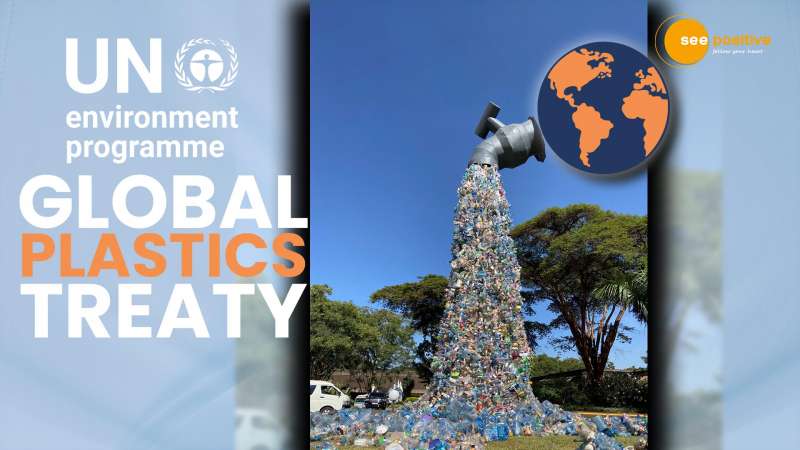

HIGHLIGHTS:
- 175 countries have agreed to a legally binding worldwide convention called the “Global Plastics Treaty”
- The meeting was held in Nairobi, Kenya
- They have now begun to plan how to put the pact into effect by 2024
175 countries have agreed to a legally binding worldwide convention called the “Global Plastics Treaty” to end the plastic pollution catastrophe by addressing the whole material supply chain in the world’s largest multilateral environmental agreement.
At a meeting of the United Nations Environment Assembly (UNEA) in Nairobi, Kenya, a resolution on the first treaty was passed. The first accord aims to address the 9 billion tonnes of plastic created since the plastic age began in the 1950s. They have now begun to plan how to put the pact into effect by 2024.
Concepts that were proposed
Two opposing suggestions were presented during the meeting:
Peru and Rwanda are leading one idea. It covered the entire life cycle of plastics, from production to consumption to disposal.
The second concept was a much more limited one. It was focused on the issue of plastics in the oceans. Japan was the driving force behind it.
Is the pact legally enforceable?
The treaty’s provisions are legally binding. The treaty also recognizes that tackling plastic and pollution will be more challenging for low-income countries than for high-income countries. As a result, a funding mechanism is required to aid in the reduction of plastic use and waste.
Waste made of plastic
In 2015, the global plastic production totaled 381 million tonnes. Every year, hundreds of thousands of tonnes of waste end up in the oceans. The majority of the waste comes from low- and middle-income countries, which have limited recycling and waste-burning capabilities. Plastic pollution has a harmful influence on marine life. There are fears that it may have an impact on human health as well.
India’s Plastic Waste
India produces roughly 26,000 tonnes of plastic each day, according to the Central Pollution Control Board (CPCB). Every day, more than 10,000 tonnes of plastic waste go uncollected. India’s per capita plastic consumption is less than a tenth of that of the United States.
Concerning UNEA-5
The fifth session of the United Nations Environment Assembly (UNEA-5) was held in Nairobi, Kenya, in February 2021. In December 2017, during UNEA-3, this meeting was agreed upon.
The UNEA-5 session took place from February 22 to February 23, 2021, in the midst of the covid-19 pandemic. The UNEA-5 in-person session was resurrected from February 28 to March 2, 2022. “Strengthening Actions for Nature to Achieve the Sustainable Development Goals” was the subject of UNEA-5.


